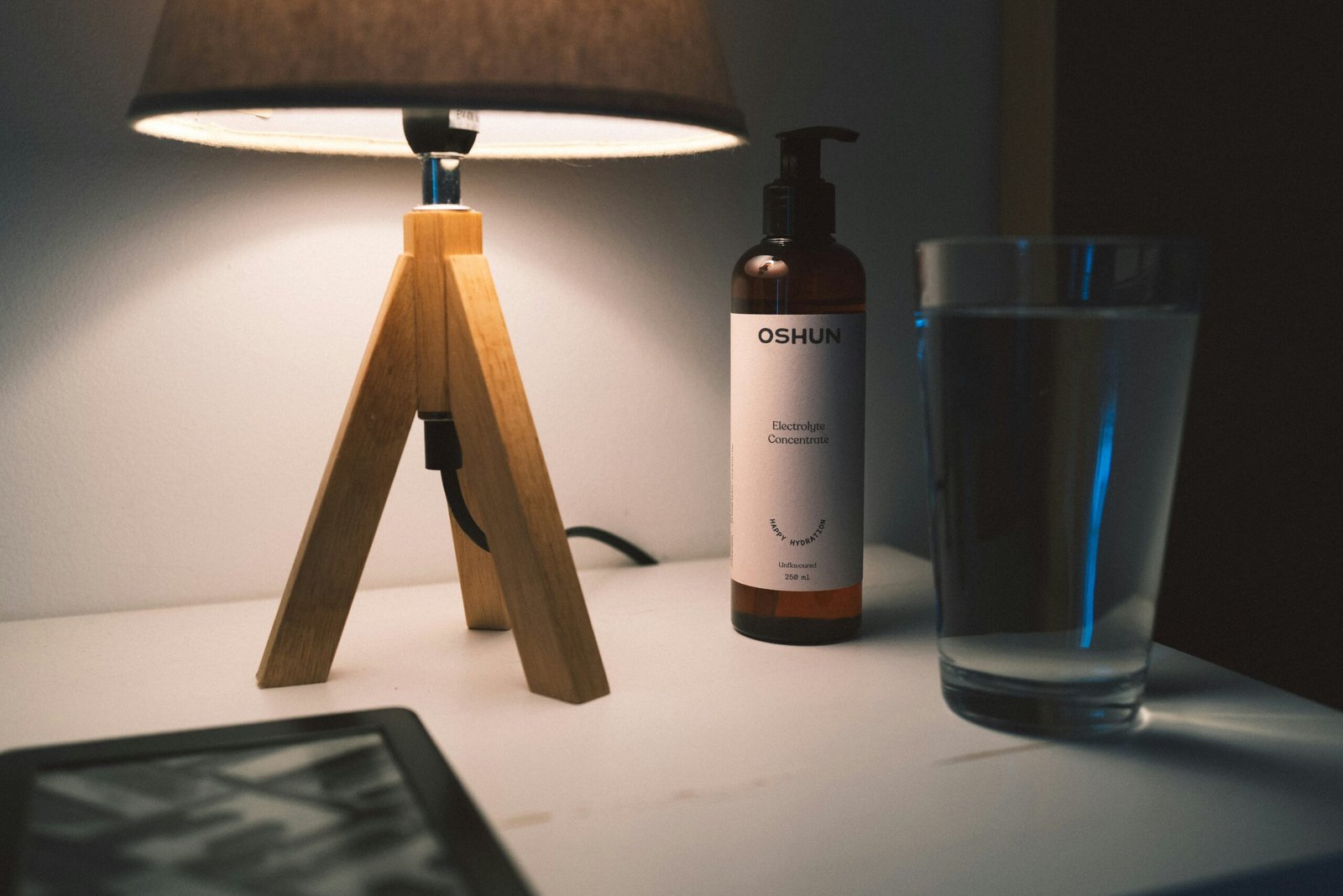
The transition into perimenopause and menopause is characterized by significant physiological and hormonal changes that can have a profound impact on sleep patterns. During this period, women experience fluctuations in estrogen and progesterone levels, which are crucial hormones regulating various bodily functions, including the sleep-wake cycle. These hormonal shifts can lead to sleep disturbances, including insomnia, making it a common concern among women during this transition.
Estrogen plays a vital role in the regulation of sleep. It influences the production of neurotransmitters that help promote restful sleep. As estrogen levels decline during perimenopause, women may find it increasingly difficult to fall asleep or stay asleep. Additionally, low estrogen levels can contribute to the occurrence of night sweats, which may awaken individuals during the night and disrupt their overall sleep quality. Progesterone, which has a calming effect, also diminishes during this phase, contributing to heightened anxiety and sleep difficulties.
Another common symptom that arises during perimenopause is restless legs syndrome, a condition that can further exacerbate insomnia. This syndrome manifests as an uncontrollable urge to move the legs, especially during periods of rest. The discomfort often leads to difficulty initiating or maintaining sleep, leaving many women feeling fatigued and unrefreshed upon waking.
Understanding the interplay between hormones and sleep disturbances is crucial for addressing the challenges posed during perimenopause and menopause. By recognizing the reasons behind these sleep issues, women can take steps to manage symptoms more effectively. This knowledge lays a foundation for exploring potential solutions and interventions that may provide relief during this transformative period in a woman’s life.
Effective Supplements for Better Sleep During Menopause
As women transition through perimenopause and menopause, sleep disturbances often become a common issue, largely influenced by hormonal fluctuations. Incorporating certain supplements may provide relief and enhance sleep quality. Below, we discuss five effective supplements that have shown promise in aiding women experiencing insomnia during this pivotal stage of life.
1. Melatonin: This natural hormone regulates the sleep-wake cycle and is commonly used to alleviate insomnia. A typical dosage ranges from 0.5 to 5 milligrams taken 30 minutes before bedtime. While melatonin is generally considered safe, some may experience side effects including daytime drowsiness or vivid dreams. Monitoring dosage and timing is essential for optimal results.
2. Magnesium: Known for its relaxing properties, magnesium is essential for maintaining a healthy sleep pattern. It may help reduce anxiety and improve sleep quality by regulating hormones. The recommended dosage is typically between 200 to 400 mg daily, preferably in the evening. However, excessive intake can lead to side effects such as digestive discomfort.
3. Valerian Root: This herbal remedy has been used for centuries to promote relaxation and improve sleep. Studies indicate that valerian root may help in decreasing the time it takes to fall asleep. Dosages usually range from 300 to 600 mg on an empty stomach before bedtime. Potential side effects can include dizziness or stomach upset, so caution is advised.
4. GABA (Gamma-Aminobutyric Acid): GABA is a neurotransmitter that plays a pivotal role in reducing anxiety and inducing sleep. Taking GABA supplements may help women combat insomnia related to hormonal changes. A standard dosage is between 250 to 750 mg before bedtime. While generally well-tolerated, monitoring individual responsiveness is recommended.
5. Ashwagandha: This adaptogenic herb helps the body manage stress, which can be particularly beneficial during perimenopause and menopause. Studies suggest ashwagandha may also improve sleep quality. Dosages typically vary from 300 to 500 mg daily, but individuals should consult healthcare providers to determine suitability and avoid possible side effects like gastrointestinal issues.
In considering these supplements, it is advisable for women to consult healthcare professionals to ensure safe and effective use, particularly when managing sleep disturbances related to hormonal changes during menopause.
Practical Tips to Improve Sleep Quality
Improving sleep quality during perimenopause and menopause is vital for managing insomnia and other related challenges. Implementing effective strategies can help create a restful night’s sleep. Below are five actionable tips to enhance sleep hygiene.
First, establishing a calming bedtime routine can signal the body that it is time to unwind. Consider engaging in relaxing activities such as reading, gentle stretching, or meditation before bed. Dimming the lights and minimizing screen time at least an hour prior to sleep also contribute to better rest by reducing the impact of blue light on melatonin production, a hormone that regulates sleep cycles.
Second, creating an optimal sleep environment is essential. Aim for a dark, cool, and quiet room, as these factors can significantly improve sleep quality. Utilize blackout curtains, comfortable bedding, and if necessary, white noise machines or earplugs to minimize disruptions. An ideal sleep environment fosters relaxation and helps combat the insomnia often reported during perimenopause.
Third, maintaining a regular sleep schedule is crucial for regulating the body’s internal clock. Try to go to bed and wake up at the same times each day, even on weekends. This consistency helps in creating a stable sleep pattern that can mitigate the hormonal fluctuations experienced during this stage of life.
Fourth, incorporating relaxation techniques may also aid in overcoming sleep disturbances. Activities such as yoga, mindfulness meditation, or deep-breathing exercises can alleviate stress and anxiety, which are common barriers to sleep during perimenopause. Engaging in these practices regularly helps promote a tranquil state conducive to restful sleep.
Finally, being mindful of diet and exercise can further enhance sleep quality. It is advisable to avoid large meals, caffeine, and alcohol before bedtime, as these can interfere with deep rest. Regular physical activity during the day also contributes positively to sleep, but it is best to avoid vigorous exercises close to bedtime.
By following these practical tips, individuals can take proactive steps toward improving their sleep quality in the face of hormonal changes during perimenopause and menopause.
When to Seek Professional Help
Identifying when sleep disturbances during perimenopause and menopause may require professional intervention is crucial for maintaining overall well-being. Women experiencing insomnia linked to hormonal changes should be aware of specific signs that indicate the need for consultation with a healthcare provider. Persistent insomnia that does not improve with lifestyle changes, such as implementing a regular sleep schedule or adopting relaxation techniques, is one telltale sign that professional help may be needed.
In addition to prolonged sleep issues, severe anxiety, mood swings, or other mental health concerns might emerge during this transition. The interplay between hormones and emotional well-being can be profound; thus, recognizing when these feelings significantly impede daily functioning is essential. If insomnia leads to increased anxiety levels or affects relationships, work, and social activities, it is advisable to seek support from qualified professionals.
Furthermore, if sleep disturbances are accompanied by other troubling symptoms—such as hot flashes, night sweats, or significant changes in mood—this may suggest that hormonal imbalances are particularly severe. Professional medical assessment is vital to determine if hormone replacement therapy or other therapeutic options are appropriate. By understanding these indicators, women can empower themselves to take proactive steps in seeking help, addressing the complex relationship between insomnia and hormonal fluctuations during the menopausal transition.
In conclusion, recognizing when to consult a healthcare provider can significantly enhance a woman’s quality of life during perimenopause and menopause. By being proactive and informed, women can effectively navigate their sleep challenges and identify the appropriate resources for support.



